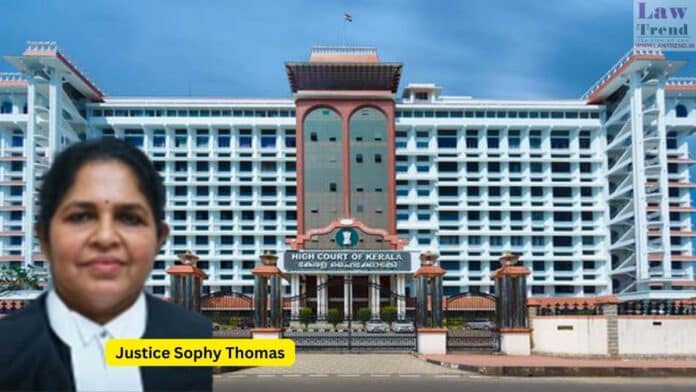A man or his relatives cannot be held guilty for cruelty towards a woman under section 498A of the IPC if there was only a live-in relationship and no solemnisation of marriage, the Kerala High Court has held.
Section 498A of the IPC provides the punishment for the husband or the relative of the husband of a woman who subjects her to cruelty.
The ruling by the Justice Sophy Thomas came while setting aside the conviction and sentence, over 20 years ago, of a man and his brother for the offences under section 498A and 306 (abetment of suicide) of the IPC.
They were convicted and sentenced after the man’s live-in partner died by suicide by self-immolation in 1997, few months after they started living together.
She had taken the extreme step allegedly due to the harassment from the man’s parents.
The High Court said that the trial and appellate courts “went wrong in finding the revision petitioners (the man and his family) guilty under section 498A and sentencing them for the offence.”
Justice Thomas reasoned that in the instant case the marriage between the couple was not solemnised and they started living together on the basis of a marriage agreement, which has no legal sanctity in the eye of law.
“…they have to be treated as persons in a live-in-relation, and they were not husband and wife, in order to attract an offence punishable under section 498A of IPC,” the High Court said.
The High Court also noted that in the statement given by the woman before her death, she did not say that the man or his brother meted out cruelties to her.
The woman only stated that her mother-in-law and father-in-law harassed and abused her by saying that she enticed away their son.
She also said in her dying declaration that her husband was loving and it was his parents who ill-treated her.
“When such clear statements are there from the part of the deceased herself after the accident, we need not search for other evidence to establish their innocence.
“In any view of the matter, the revision petitioners are not liable to be punished for an offence punishable under section 498A of IPC, and so, their conviction and sentence under that section is liable to be set aside,” the High Court said.
Regarding the conviction of the man and his family for abetment of suicide, the case against the parents of the man was abated as they died during the pendency of the plea in the High Court.
Also Read
With regard to the man and his brother, the High Court noted that the woman in her dying declaration did not say anything which could show they abetted her suicide.
The High Court observed that the trial court as well as the appellate court ought to have found that the prosecution failed to prove the offences alleged against the revision petitioners 1 (man) and 4 (his brother) and so, their conviction and sentence under sections 306 and 498A of IPC were liable to be set aside.
“As we have seen, the prosecution failed to prove its case against the 1st and 4th revision petitioners beyond reasonable doubt.
“So, the impugned judgment of conviction and sentence against them is set aside and accordingly, the revision petitioners 1 and 4 are found not guilty under sections 306 and 498A of IPC and they are acquitted. Their bail bonds are cancelled and they are set at liberty forthwith,” the HC said.
The order came on the appeal moved by the man, his brother and his parents against the trial court and appellate court decisions convicting and sentencing them for the two offences.




